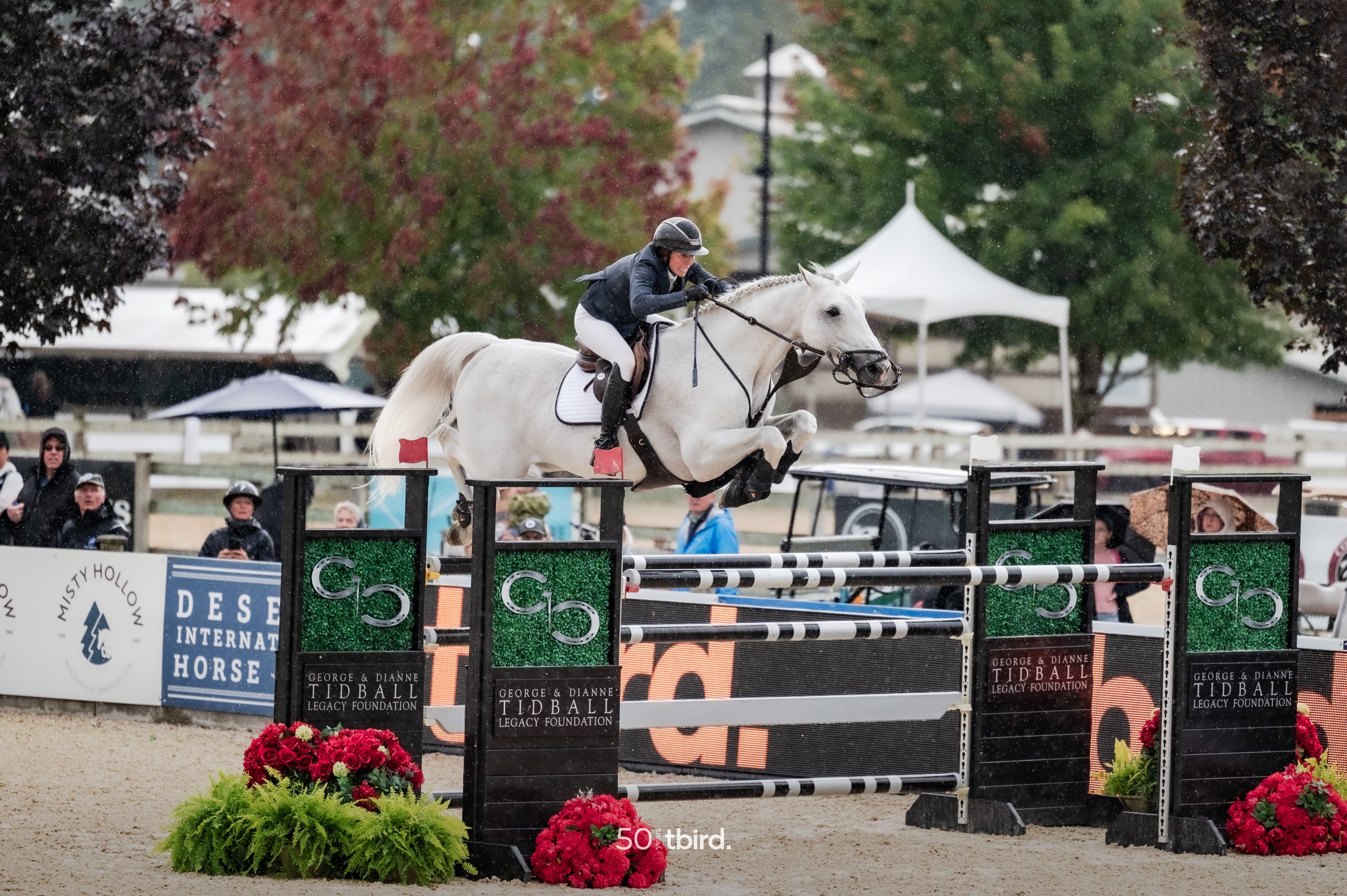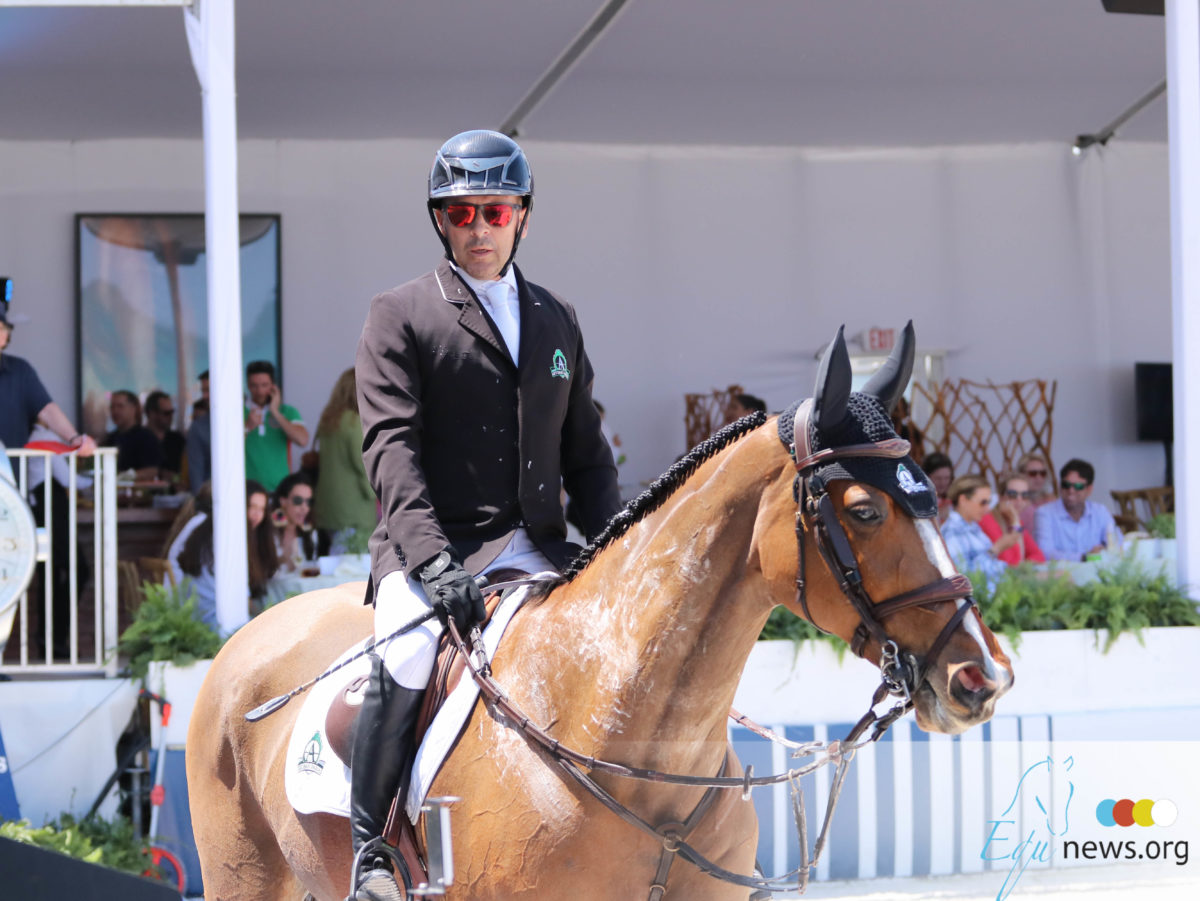Members of the 2016 Canadian Olympic show jumping team have spoken against the vote cast by the Canadian delegation at the International Equestrian Federation (FEI) General Assembly held November 22, 2016, in Tokyo, Japan. The FEI proposed changing the current Olympic format for equestrian sport to that of three-man teams with no drop score and the ability to substitute a fourth rider at any point during competition. The current format sees teams of four compete with the best three scores counting, and the worst score dropped from the final team total. Following a period of consultation, FEI member federations voted on the proposed changes during the FEI General Assembly. Equestrian Canada, the national federation for equestrian sport, voted in favour of the proposed change. Of the 107 national federations represented, 11 voted against the proposed three-man format including Albania, Bulgaria, France (team gold at the 2016 Rio Olympics), Germany (team bronze at the 2016 Rio Olympics), Latvia, Luxembourg, Monaco, New Zealand, the Netherlands, Romania, and Switzerland. “While at the Rio Olympics, a meeting was called with the Canadian show jumping athletes present to discuss the proposed changes,” explained Lamaze, an Olympic gold, silver and bronze medalist for Canada. “It is hard to get all of the riders to agree on something but, on this point, the riders in Rio were unanimous; we were all against it. Given the outcome of our meeting, it comes as a complete shock that Canada voted in favour of the proposed change to three-man teams. What the Canadian federation went forward with was not the wish of the Canadian show jumping riders, as per our meeting in Rio. “I accept the fact that our vote would not have changed the outcome, but we made a decision and believe that our voices should have been heard,” continued Lamaze. “For the Canadian federation to change its vote without notifying or consulting the athletes is wrong, in my opinion. This was not the riders’ choice, and this is not what was presented to us in Rio.” Currently ranked number six in the world, Lamaze won individual gold and team silver medals at the 2008 Beijing Olympic Games. At the recent 2016 Rio Olympics, he won an individual bronze and led Canada into a jump-off against Germany for the team bronze. Lamaze’s Rio Olympic teammates included Yann Candele of Caledon, ON, Tiffany Foster of North Vancouver, BC, and Amy Millar of Perth, ON. “Both the North American Riders Group and the International Jumping Riders Club put forth recommendations against the proposed change to a three-man format,” said Foster, who sits on the Board of both organizations. “Specific to the Canadian federation, all of the Rio Olympic show jumping athletes were called to a meeting and asked what the recommendation was from the athletes, and what the position of the Canadian federation should be. We were unanimous in that the proposed change was not in the best interest of the horse, the rider, or the sport, and that Canada should vote against the proposed change. “What is important here is that the athletes’ voices were not heard, and that our own federation went against us after giving us the impression that we all shared the same opinion,” continued Foster, who is ranked 21st in the world. “We wanted to be aligned with the other powerhouse nations in our sport in saying that we were against this change. Instead, Canada is now on record as saying this is what we wanted when it wasn’t. It is frustrating and extremely disappointing that our own federation did not act in accordance with what we were told.” Candele stated, “We feel that our voice was not heard by our federation. We expressed our opinion when asked at the Olympics, and the fact that our federation voted in favour of the proposal comes as a complete surprise, as does the fact that we were not even consulted or made aware of the change in the federation’s position. There has been no communication, and we have no understanding of why the federation voted the way it did.” “Given the success we’ve had under the current format, it makes no sense for Canada to vote in favour of changing to three-man teams,” said Lamaze who is based in Wellington, FL, and trains in Belgium. “We experienced some of the most exciting team competition of any sport at the Rio Olympics, and gained many new fans. “The current format works, and I want to make it clear that we believe the new format is not good for our sport on many different levels,” concluded Lamaze. “I am extremely disappointed, and feel that our national federation did not appropriately represent or respect the wishes of its athletes.” Following the vote at the FEI General Assembly, the proposed change to three-man teams now goes forward to the International Olympic Committee (IOC) Executive Bureau for final approval.
Olympic Athletes Speak Against Canadian Vote at FEI General Assembly
-
categories: Canada



